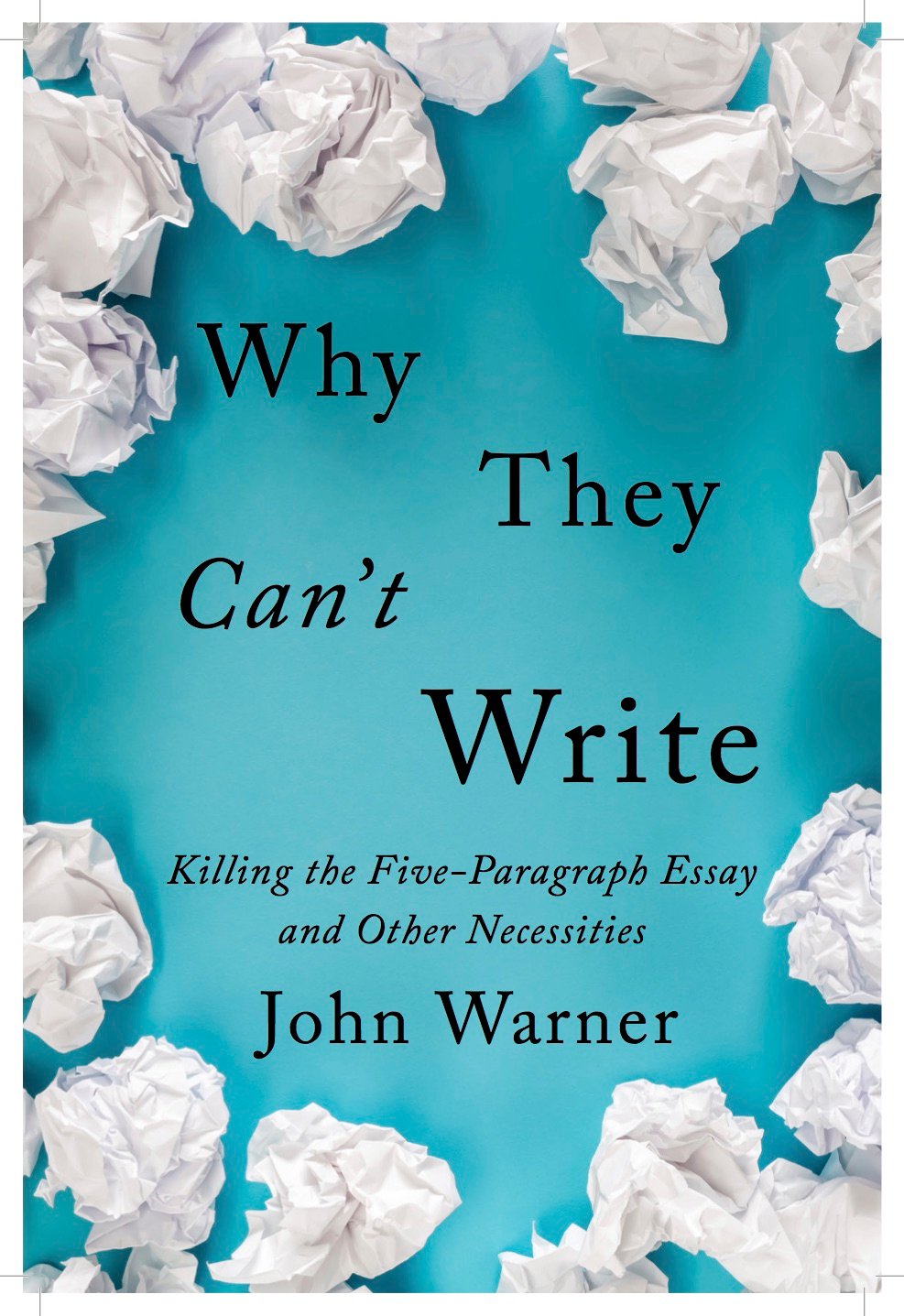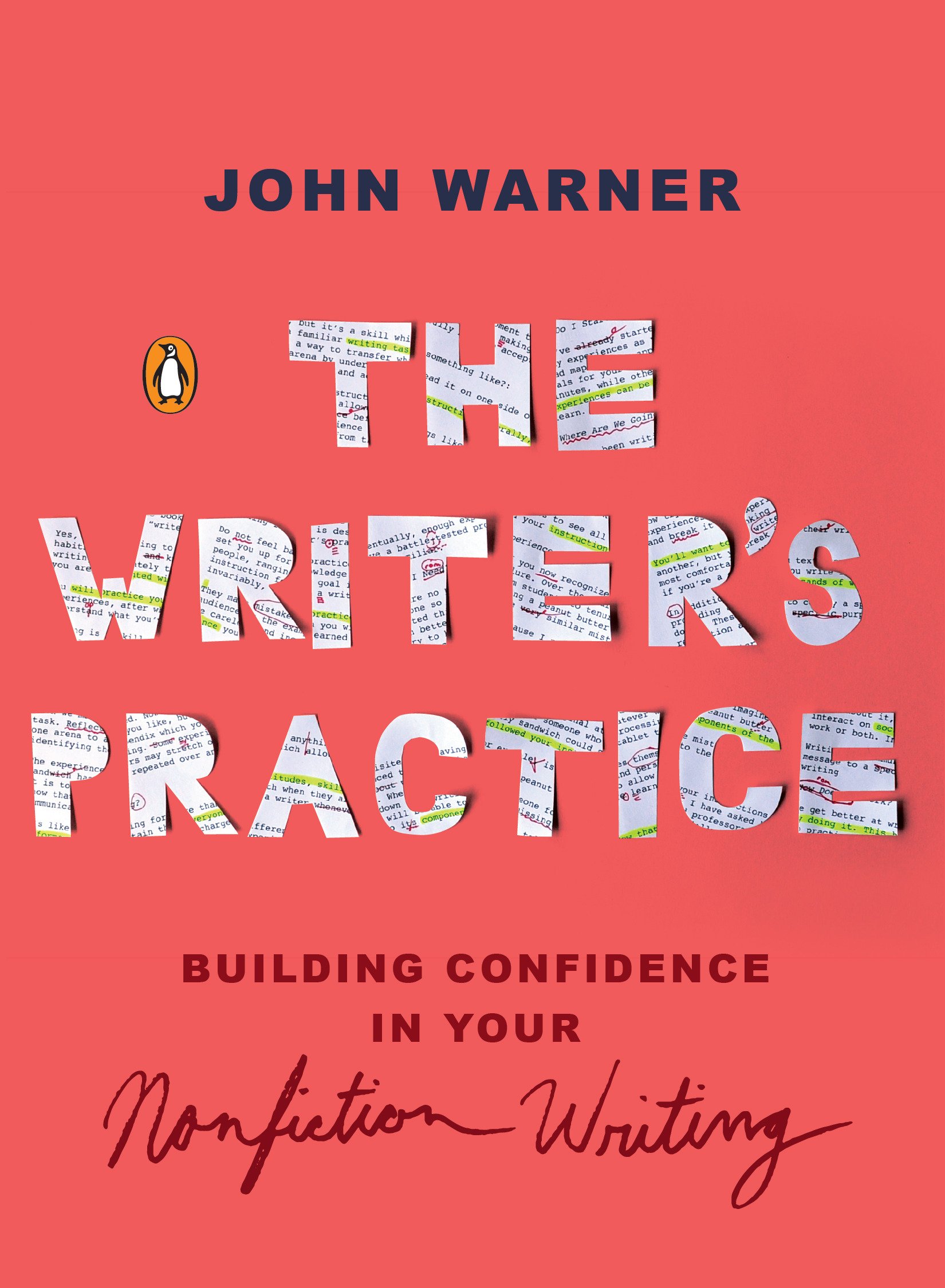You have /5 articles left.
Sign up for a free account or log in.
By disposition and conditioning I am not entirely comfortable with self-promotion, but screw it, here goes:
I want to revolutionize the way we teach writing in this country.
I really do.
This is not a pitch. I am not promising that I have a foolproof method to suddenly transform the state of writing instruction. I am not an “edupreneur,” and there is no foolproof method.
I am, however, convinced we can do better than what we’re doing, that there is tremendous untapped potential in the world when it comes to teaching and learning writing, and that maybe just maybe – dammit, not maybe, definitely – I can play a role in helping to fulfill that potential.
My approach is three-pronged:
Prong the first: Why They Can’t Write: Killing the Five-Paragraph Essay and Other Necessities. (Order direct from JHUP and use code HTWN to save 20%.)
This is a book forthcoming in just a little over a month from Johns Hopkins University Press, and it is my attempt to diagnose what ails us when it comes to writing instruction and provide a blueprint for fixing our broken system. I believe we have conditioned students to perform “writing-related simulations,” which help students pass temporary muster as measured by standardized assessments, but do little to help them develop their writing abilities.
It doesn’t need to be this way, and in the book, I argue why I believe this to be true.[1]
(Click here to see what people like Cathy Davidson, Audrey Watters, Peter Greene, Susan Blum, James Lang, Susan Schorn, and Paul Thomas are saying about Why They Can’t Write.)

Prong the second: The Writer’s Practice: Building Confidence in Your Nonfiction Writing.
The Writer’s Practice is the result of my frustrations over the years with the “folklore” of teaching writing, as well as my disappointment in the limits of prescriptive texts like They Say/I Say to develop the whole writer, rather than giving students “hacks” which allow them to simulate academic discourse.
The book is a series of “experiences” (assignments) which are designed to help writers practice their practices: the skills, attitudes, knowledge, and habits of mind writers possess.
Every experience has a unique audience and full rhetorical situation. The book can be used for independent study or easily adapted to the writing classroom and would be suitable for upper-division high school through lower-division college courses, not necessarily limited to composition. It encapsulates much of what I’ve done in my own classroom.
This book publishes in February, but advance copies for review are now available.
(Click here to see what people like Paul Thomas, Carol Jago, Daniel Chambliss, Catherine Prendergast, Sarah Rose Cavanagh, Susan Schorn, and Chris Warnick are saying about The Writer’s Practice.)

Prong the third: Get out in the world and talk about the books and my vision.
I actually really enjoy the opportunity to do this. I am not shy about sharing, but I am less than a go-getter when it comes to chasing down every last opportunity for myself (see: difficulty with self-promotion).
Additionally, because I am not a billionaire, nor am I acquainted with any billionaires who would be able to infuse the education ecosystem with my particular brand of thinking, I must rely on good, old grassroots word of mouth, which is where you come in.
Should you be interested in this project, there are a number of things you can do.
1. Read, write about, and/or review Why They Can’t Write and The Writer’s Practice.
If you are a writer, reviewer, instructor, librarian, curriculum coordinator, podcaster, blogger, tweeter, Instagrammer, Snapchatter, or you fly one of those planes that spells out messages in the sky using smoke, I can make every effort to put a review copy of either or both books in your hands. (I cannot guarantee availability for everyone, but I’ll do my best within the limits of the publishers’ resources, and how prudent they believe it may be to give away so much product.)
If you are interested in receiving a review copy, you can reach me either by clicking on my byline at the top of the page which will bring to you an email contact, or through my personal website which also has a “contact John” feature.
Please include your name, why you would like a copy of the book(s), and contact information that I can pass along to the proper people in order to put the book(s) in your hands.
2. Interview me.
Like I said, I like to talk about this stuff. Once I get going it can be tough to stop, but I’m happy to answer any questions about the books in any medium. I'll etch my answers in the sand, only to see them washed away by the tide, I don’t care. Same thing as writers/reviewers: hit me up at my email.
3. Invite me to come speak at your campus or organization.
This is perhaps my favorite part of the process because the books themselves are the product of conversations and collaborations I’ve had with hundreds of people over the course of my career, and the best way to refine my ideas is to present them to others and hear their ideas in return.
For information about inviting me to speak, and some of the different talks/seminars I can give, you can check out this page on my website.
I’m excited for what’s next.
I’m nervous about what’s next.
Thanks for reading this, particularly you regulars, without whom these books probably wouldn’t have come into existence. The ways and whys that happens to be true could fill another post.
You’ll probably see me mentioning these projects quite a bit in the coming months, but I promise they will be in the context of other things. This shall be my one post of shameless (shameful) self-promotion.
(Probably.)
[1] The threads of the argument will be familiar to regular readers of this blog, but I believe they gain something in the reconsideration necessary to do the book, and by being joined together in search of a cohesive whole.





